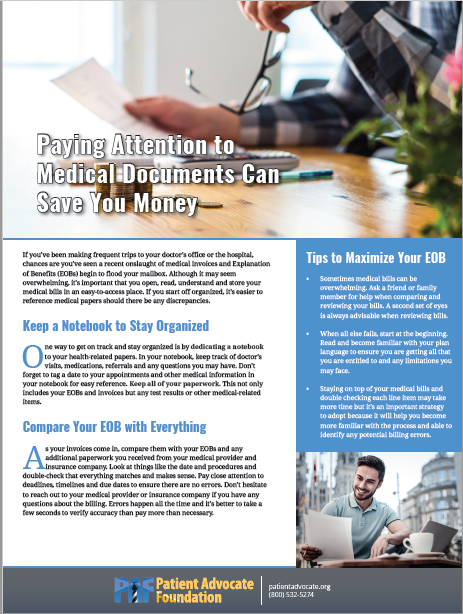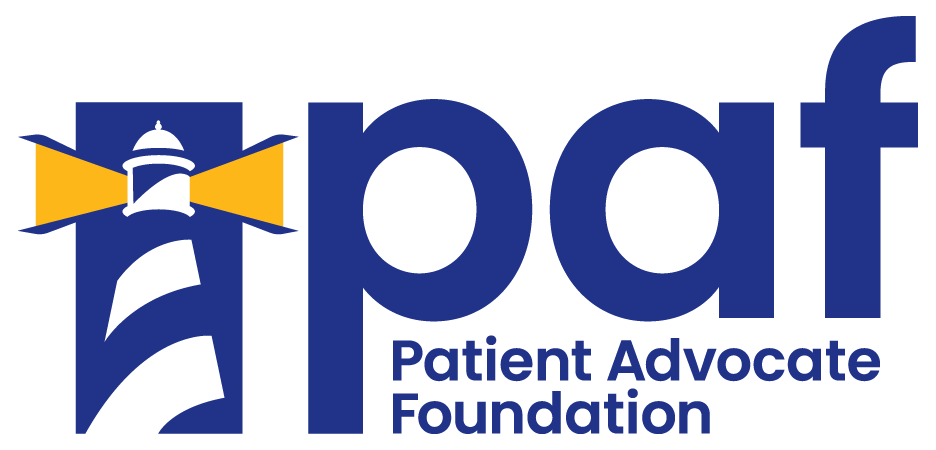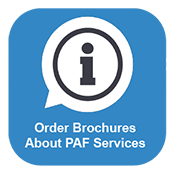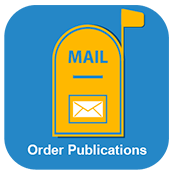Downloads

Paying Attention to Medical Documents Can Save You Money
Creating a routine to review your medical bills and Explanation of Benefits as you receive them can save you money. Errors happen all the time and it’s better to take a few seconds to verify accuracy than pay more then necessary.









